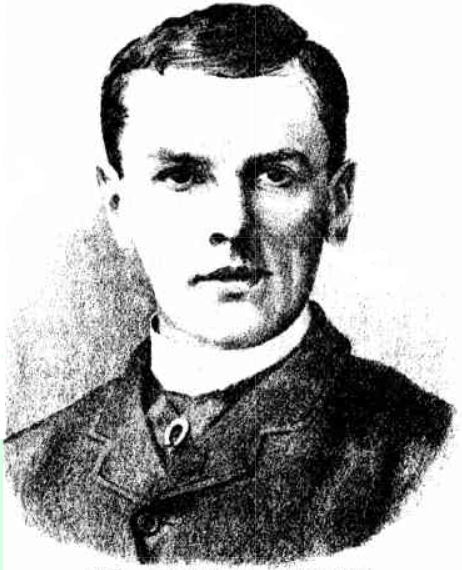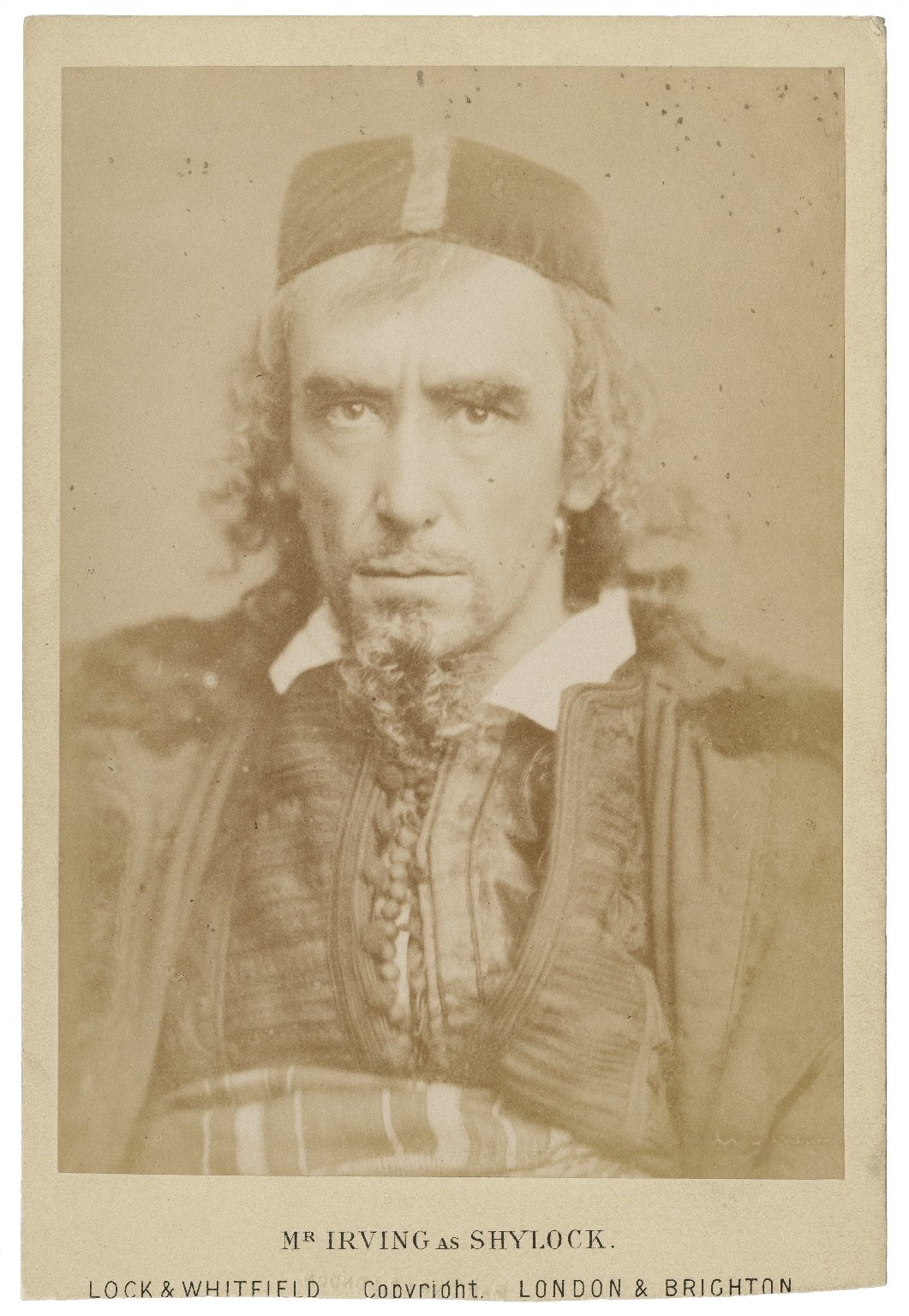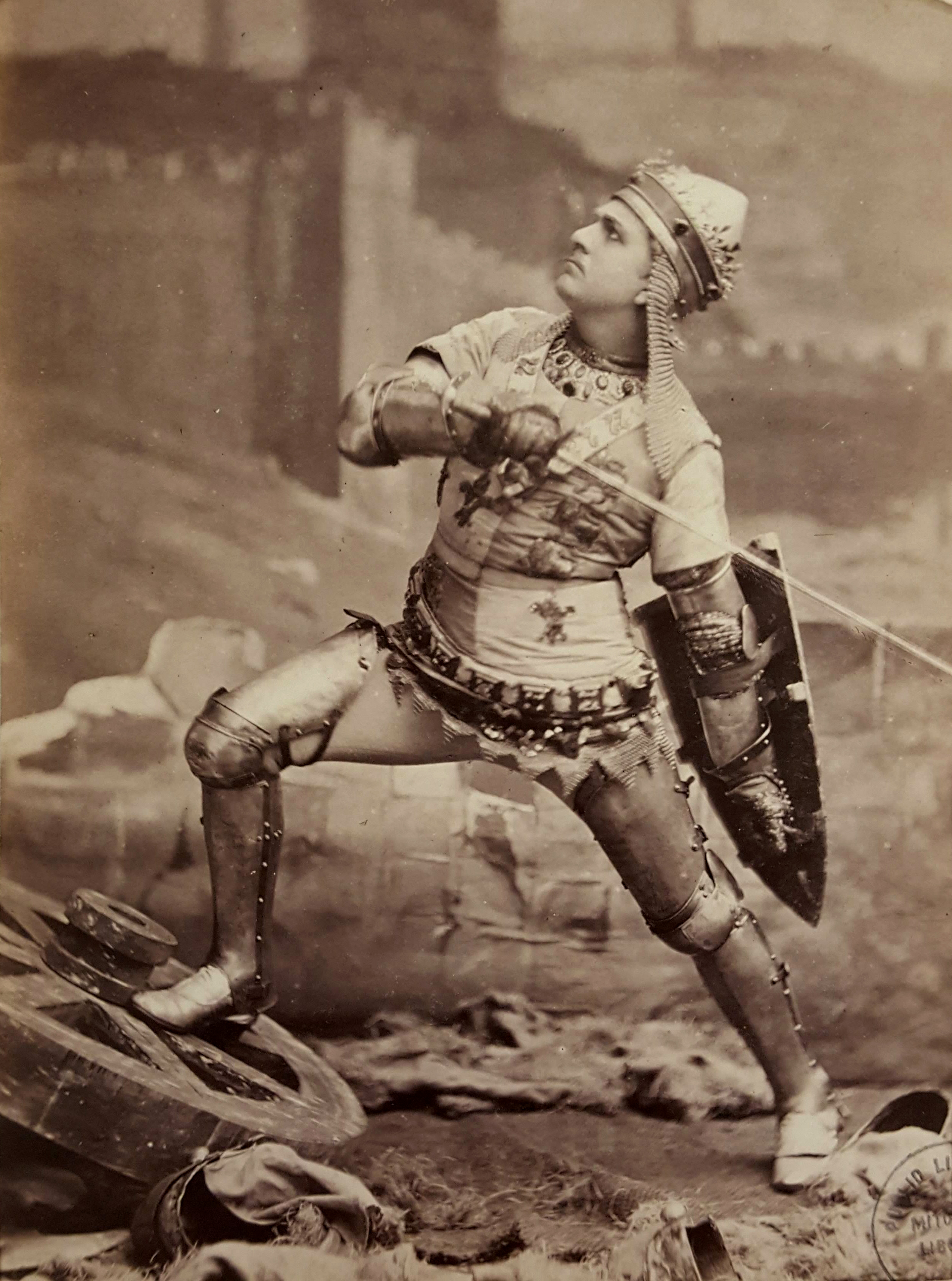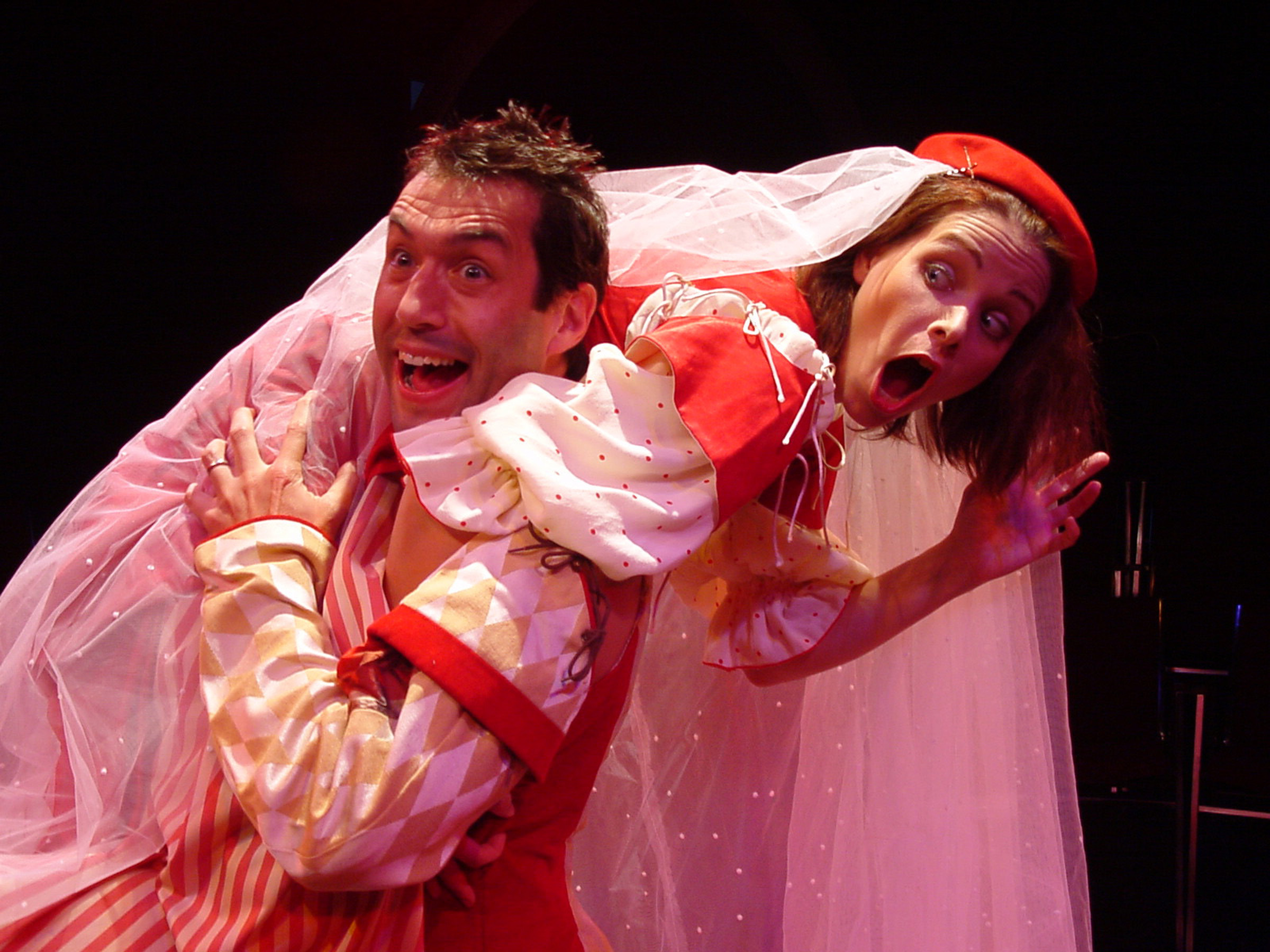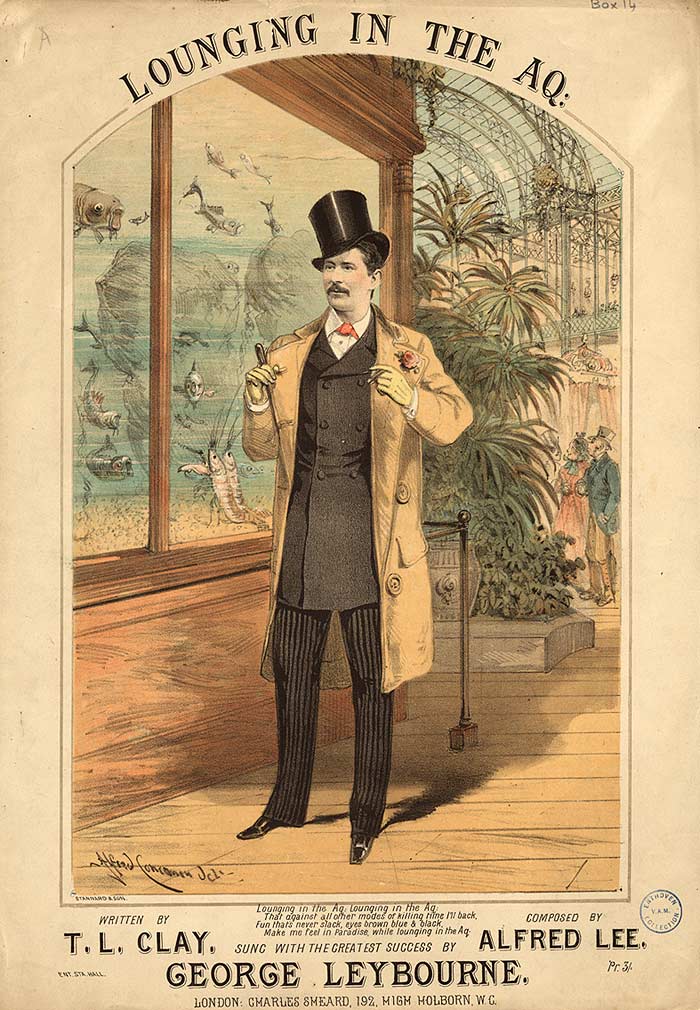|
George Sutton Titheradge
George Sutton Titheradge (9 December 1848 – 22 January 1916) was an English actor. Biography Titheradge was born at Portsea, Portsmouth, England, eldest son of George Robert Titheradge (an accountant) and Sarah Isabelle Emblim. He made his first appearance on the stage at the Theatre Royal, Portsmouth, subsequently supported Charles Dillon in Shakespearian plays, and in 1873 played the junior lead at Bristol. In 1876 he was Joseph Surface in the Chippendale classical company, and in the same year played Hamlet at Calcutta. On 1 January 1877 he was the Herald at the Calcutta Durbar and proclaimed Queen Victoria Empress of India. He made his first appearance in London on 6 October 1877, and on 8 April 1878 played Iago to the Othello of Henry Forrester. Titheradge visited India a second time and, going on to Melbourne, made his first appearance there in May 1879 as Lord Arthur Chilton in ''False Shame''; F. H. Pollock also making his Australian debut. He joined the London Come ... [...More Info...] [...Related Items...] OR: [Wikipedia] [Google] [Baidu] |
Actor
An actor or actress is a person who portrays a character in a performance. The actor performs "in the flesh" in the traditional medium of the theatre or in modern media such as film, radio, and television. The analogous Greek term is (), literally "one who answers".''Hypokrites'' (related to our word for hypocrite) also means, less often, "to answer" the tragic chorus. See Weimann (1978, 2); see also Csapo and Slater, who offer translations of classical source material using the term ''hypocrisis'' ( acting) (1994, 257, 265–267). The actor's interpretation of a rolethe art of actingpertains to the role played, whether based on a real person or fictional character. This can also be considered an "actor's role," which was called this due to scrolls being used in the theaters. Interpretation occurs even when the actor is "playing themselves", as in some forms of experimental performance art. Formerly, in ancient Greece and the medieval world, and in England at the time of ... [...More Info...] [...Related Items...] OR: [Wikipedia] [Google] [Baidu] |
Robert Brough (actor)
Robert Brough (1857 – 21 April 1906) was born in England to a family prominent in literature and the theatre. He had a notable career as actor and manager in Australia. History Brough was born Lionel Barnabas Brough in England, son of Robert Barnabas Brough (1828–1860) journalist, poet and librettist, and Elizabeth Brough, nḗe Romer. Actress Fanny Brough was a sister. His parents had ambitions for him in the world of commerce, but he soon decided on a stage career, and Edward Saker found a part for him in his show '' Little Em'ly'', an adaptation of ''David Copperfield'', in Glasgow in 1870. Brough was introduced to Florence Trevelyan when he started working with the D'Oyley Carte No. 2 Company, and shortly after they married he was put on a three-year contract at the Gaiety. They moved to Australia under contract to J. C. Williamson, first appearing in Melbourne in the Australian première of ''Iolanthe''. His first Sydney appearance was in July 1885 under contract to Wi ... [...More Info...] [...Related Items...] OR: [Wikipedia] [Google] [Baidu] |
Shylock
Shylock is a fictional character in William Shakespeare's play ''The Merchant of Venice'' (c. 1600). A Venetian Jewish moneylender, Shylock is the play's principal antagonist. His defeat and conversion to Christianity form the climax of the story. Shylock's characterisation is composed of stereotypes, for instance greediness and vengefulness, although there were no practising Jews who lived in England during Shakespearean England. Jews were expelled from the country in 1290 by Edward I in the Edict of Expulsion; this was not reversed until the Cromwell Era. Name Shylock is not a Jewish name. However, some scholars believe it probably derives from the biblical name Shalah, which is (''Šélaḥ'') in Hebrew. Shalah is the grandson of Shem and the father of Eber, biblical progenitor of Hebrew peoples. All the names of Jewish characters in the play derive from minor figures listed in genealogies in the Book of Genesis. It is possible that Shakespeare originally intended t ... [...More Info...] [...Related Items...] OR: [Wikipedia] [Google] [Baidu] |
George Rignold
George Richard Rignold, born George Richard Rignall, (1839 – 16 December 1912) was an England, English-born actor, active in Britain and Australia. Early life Rignold was born in Birmingham, England. He was the son of William Rignall, an actor and theatre manager, and his wife Patience Blaxland, an actress. The surname Rignold was used professionally by both George and his brother William Rignold, William. George Rignold began his acting career quite young, playing the part of the messenger in Macbeth. Acting career Rignold soon gained a reputation as an actor, playing in London the parts of William in ''Black-Eyed Susan'' and Romeo in Romeo and Juliet. In 1869, he was part of the company at the Queen's Theatre, Long Acre. He then toured the United States (where women would fight over the good-looking actor) and Canada from 1875, where he made a great impression — a reference in ''The Atlantic Monthly'' in 1938 shows that memory of him persisted. He then toured in Australi ... [...More Info...] [...Related Items...] OR: [Wikipedia] [Google] [Baidu] |
The Taming Of The Shrew
''The Taming of the Shrew'' is a comedy by William Shakespeare, believed to have been written between 1590 and 1592. The play begins with a framing device, often referred to as the induction, in which a mischievous nobleman tricks a drunken tinker named Christopher Sly into believing he is actually a nobleman himself. The nobleman then has the play performed for Sly's diversion. The main plot depicts the courtship of Petruchio and Katherina, the headstrong, obdurate shrew. Initially, Katherina is an unwilling participant in the relationship; however, Petruchio "tames" her with various psychological and physical torments, such as keeping her from eating and drinking, until she becomes a desirable, compliant, and obedient bride. The subplot features a competition between the suitors of Katherina's younger sister, Bianca, who is seen as the "ideal" woman. The question of whether the play is misogynistic has become the subject of considerable controversy, particularly among mode ... [...More Info...] [...Related Items...] OR: [Wikipedia] [Google] [Baidu] |
Sydney Grundy
Sydney Grundy (23 March 1848 – 4 July 1914) was an English dramatist. Most of his works were adaptations of European plays, and many became successful enough to tour throughout the English-speaking world. He is, however, perhaps best remembered today as the librettist of several comic operas, notably ''Haddon Hall''. Life and career Grundy was born in Manchester, England, the son of Alderman Charles Sydney Grundy. He was educated at Owens College, Manchester, and studied law at the Middle Temple. He was called to the bar in 1869 and practised law until 1876. Early career His early one-act farce, ''A Little Change'', was produced at the Haymarket Theatre in 1872 by the Kendals. This was followed by ''All at Sea'' in 1873, also starring the Kendals. In 1876, Grundy published ''The Days of His Vanity''. He wrote ''Mammon'' for W. H. Vernon at the Strand Theatre in 1877 and ''After Long Years'' for the Folly Theatre in 1879. Early comedies included ''The Glass of Fashion'' ... [...More Info...] [...Related Items...] OR: [Wikipedia] [Google] [Baidu] |
Thomas W
Thomas may refer to: People * List of people with given name Thomas * Thomas (name) * Thomas (surname) * Saint Thomas (other) * Thomas Aquinas (1225–1274) Italian Dominican friar, philosopher, and Doctor of the Church * Thomas the Apostle * Thomas (bishop of the East Angles) (fl. 640s–650s), medieval Bishop of the East Angles * Thomas (Archdeacon of Barnstaple) (fl. 1203), Archdeacon of Barnstaple * Thomas, Count of Perche (1195–1217), Count of Perche * Thomas (bishop of Finland) (1248), first known Bishop of Finland * Thomas, Earl of Mar (1330–1377), 14th-century Earl, Aberdeen, Scotland Geography Places in the United States * Thomas, Illinois * Thomas, Indiana * Thomas, Oklahoma * Thomas, Oregon * Thomas, South Dakota * Thomas, Virginia * Thomas, Washington * Thomas, West Virginia * Thomas County (other) * Thomas Township (other) Elsewhere * Thomas Glacier (Greenland) Arts, entertainment, and media * ''Thomas'' (Burton novel) 1969 nove ... [...More Info...] [...Related Items...] OR: [Wikipedia] [Google] [Baidu] |
Caste (play)
''Caste'' is a comedy drama by Thomas William Robertson, first seen in 1867. The play was the third of several successes by Robertson produced in London's West End by Squire Bancroft and his wife Marie Wilton. As its name suggests, ''Caste'' concerns distinctions of class and rank. The son of a French nobleman marries a ballet dancer and then goes to war. When word arrives that he has been killed in action, his mother tries to wrest the child from his penniless widow. History and early productions ''Caste'' is based on the short story "The Poor Rate Unfolds a Tale", written by Thomas William Robertson in 1866 for ''Rates and Taxes'', a Christmas publication edited by Tom Hood.Full text of ''Society'' and ''Caste'' edited by T. Edgar Pembe ... [...More Info...] [...Related Items...] OR: [Wikipedia] [Google] [Baidu] |
John Hare (actor)
Sir John Hare (16 May 1844 – 28 December 1921), born John Joseph Fairs, was an English actor and theatre manager of the later 19th– and early 20th centuries. Born and brought up in London, with frequent visits to the West End, Hare had a passion for the theatre from his childhood. After acting as an amateur as a young man he joined a professional company in Liverpool, before making his London debut in 1865 at the age of 21 with Marie Wilton's company. Wilton was a pioneer of naturalistic theatre, with which Hare was greatly in sympathy, and he quickly gained a reputation in character roles, particularly in comedies. Within a decade Hare was well enough established to go into management. He was in partnership with the actor W. H. Kendal at the Court Theatre from 1875 to 1879, and from 1879 to 1888 at the St James's Theatre with Kendal and the latter's wife, Madge. They presented, mostly successfully, a succession of new British plays, adaptations of French works, and ... [...More Info...] [...Related Items...] OR: [Wikipedia] [Google] [Baidu] |
George Titheradge C 1870 1900 P10 From Album Compiled Gordon Ireland MS 6135 Collection State Library Victoria
George may refer to: People * George (given name) * George (surname) * George (singer), American-Canadian singer George Nozuka, known by the mononym George * George Washington, First President of the United States * George W. Bush, 43rd President of the United States * George H. W. Bush, 41st President of the United States * George V, King of Great Britain, Ireland, the British Dominions and Emperor of India from 1910-1936 * George VI, King of Great Britain, Ireland, the British Dominions and Emperor of India from 1936-1952 * Prince George of Wales * George Papagheorghe also known as Jorge / GEØRGE * George, stage name of Giorgio Moroder * George Harrison, an English musician and singer-songwriter Places South Africa * George, Western Cape ** George Airport United States * George, Iowa * George, Missouri * George, Washington * George County, Mississippi * George Air Force Base, a former U.S. Air Force base located in California Characters * George (Peppa Pig), a 2-y ... [...More Info...] [...Related Items...] OR: [Wikipedia] [Google] [Baidu] |
Ibsen
Henrik Johan Ibsen (; ; 20 March 1828 – 23 May 1906) was a Norwegian playwright and theatre director. As one of the founders of modernism in theatre, Ibsen is often referred to as "the father of realism" and one of the most influential playwrights of his time. His major works include ''Brand'', ''Peer Gynt'', '' An Enemy of the People'', ''Emperor and Galilean'', ''A Doll's House'', ''Hedda Gabler'', ''Ghosts'', ''The Wild Duck'', ''When We Dead Awaken'', ''Rosmersholm'', and ''The Master Builder''. Ibsen is the most frequently performed dramatist in the world after Shakespeare, and ''A Doll's House'' was the world's most performed play in 2006. Ibsen's early poetic and cinematic play ''Peer Gynt'' has strong surreal elements. After ''Peer Gynt'' Ibsen abandoned verse and wrote in realistic prose. Several of his later dramas were considered scandalous to many of his era, when European theatre was expected to model strict morals of family life and propriety. Ibsen's later work ... [...More Info...] [...Related Items...] OR: [Wikipedia] [Google] [Baidu] |
Imperial Theatre, London
The Royal Aquarium and Winter Garden was a place of amusement in Westminster, London. It opened in 1876, and the building was demolished in 1903. The attraction was located northwest of Westminster Abbey on Tothill Street. The building was designed by Alfred Bedborough in an ornamental style faced with Portland stone. The Aquarium Theatre was located in the west end of the building and was renamed the Imperial Theatre in 1879. Methodist Central Hall now occupies the site. History The Royal Aquarium opened on 22 January 1876. Its board of directors included Henry Labouchère, the financier and journalist; William Whiteley the retailer; and Arthur Sullivan, the composer. It was intended to offer art exhibitions, concerts and plays, among other intellectual entertainments such as The Crystal Palace.''The R ... [...More Info...] [...Related Items...] OR: [Wikipedia] [Google] [Baidu] |


